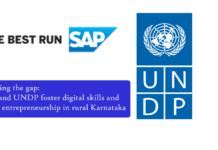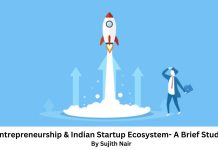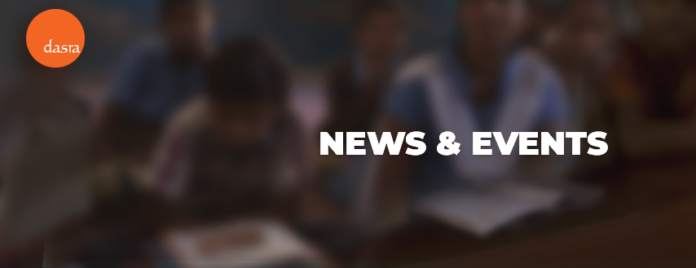Dasra, a strategic philanthropy foundation, organized the 12th (India) and the 1st Global Edition of its Dasra Philanthropy Week, the role of philanthropy in driving social impact in the wake of the COVID-19 pandemic. The event brought together over 100 speakers, consisting of philanthropists, NGO leaders, government stakeholders, representatives of Foundations, Corporates, and development sector experts from India and across the world. The sessions emphasized the need for shifting philanthropic discussions from surviving to thriving by promoting the ideals of justice, equity, diversity and inclusion (JEDI) to enable ‘A Billion Thriving’ particularly in the wake of the COVID-19 pandemic.
Key thought leaders and sector experts who spoke at the forum included: Gurcharan Das, Author, Amitabh Kant, CEO, NITI Aayog, Hansal Mehta, Film Maker, Dr. Yusuf K Hamied, Chairman, Cipla, Dr. Zoya Rizvi, Deputy Commissioner of the Ministry of Health and Family Welfare, Government of India, Don Gips, CEO, Skoll Foundation, Hari Menon, Country Director, India, Bill & Melinda Gates Foundation, Pritha Venkatachalam Partner Bridgespan, Ravi Venkatesan, Trustee of Rockefeller Foundation and Founder & Chairman, GAME, Meera Mehta, Executive Director, Center for Water and Sanitation (CWAS), CEPT University, Shilpa Kumar, Partner, Omidyar Network, Lucy Bernholz, Director, Digital Civil Society Lab & Senior Research Scholar, Stanford PACS, Vidya Shah, Chairperson & CEO, EdelGive Foundation among others. The experts shared their views on multiple aspects of ‘A Billion Thriving’ through panel discussions, data sharing and knowledge sharing sessions, highlighting the critical need for helping the most vulnerable populations thrive.
‘A Billion Thriving’: A Philanthropic Movement to Empower India
The sessions highlighted the need for shifting philanthropic discussions from surviving to thriving with focused interventions directed towards the most vulnerable sections of society. The year 2020 presented a number of hard truths, exposing deep fault lines around inequities seeping across the country. This is, therefore, a wakeup call to reimagine the traditional approach towards strategic and collaborative philanthropy and the impact it can have in addressing the pressing issues. The India Philanthropy Report 2021, co-created by Dasra and Bain and Company, released during this week, revealed that in FY 2020, private-sector funding totalled about INR 64,000 crore—close to 23% more than in FY 2019. This demonstrates the potential of family philanthropy in India to drive social impact and support ‘A Billion Thriving’ especially in the wake of the COVID-19 pandemic and to promote a culture of philanthropy in a fast changing regulatory environment. Commenting on the Dasra Philanthropy Week and the idea of ‘A Billion Thriving’, Neera Nundy, Co-founder, Dasra, said, “Dasra’s focus is on working with vulnerable communities that face disproportionate risk and are trapped in a socio-economic system that has deemed them largely invisible. To help uplift these communities and realise the potential of over a billion Indians, the first step is to champion diversity and build resilience.
But to achieve this, family philanthropists, NGOs, foundations, corporates and governments will need to work together to regularly exchange knowledge and learnings, align on a shared vision, build a collective voice, and combine resources to invest in scalable, inclusive and sustainable solutions. Only then can we say, with our hand on our heart, that we are India, a nation of A Billion Thriving.”
The JEDI talks (Justice, Equity, Diversity & Inclusion) introduced this year as part of the Dasra Philanthropy Week highlighted the need to promote justice, equity, diversity and inclusion in philanthropic discussions in India to achieve the goal of ‘A Billion Thriving.’ Mr. Amitabh Kant, CEO, NITI Aayog, in his JEDI Talk on Family Philanthropy, said that “Global extreme poverty is expected to rise due to the COVID-19 pandemic. Therefore, beyond the corporate CSR and institutional Foundations, Family Philanthropists will play a pivotal role in the building of modern India in terms of bringing in ideas, innovation and institutions.”
The week-long event witnessed high-impact discussions and dialogues on critical issues such as harnessing the power of India’s young population, the need to accelerate innovations in water sanitation and hygiene (WASH), exploring the intersections between climate change and adolescents, encouraging collaborative action to achieve systemic change, harnessing the power of data, and ensuring dignity and equity for vulnerable workers in India.
The sessions discussed innovative ways to take advantage of India’s unique demographic dividend for driving positive social change. India has more than half of its population under the age of 25 years. The session on ‘Leveraging the dividend: the power of the youth population’ highlighted the critical role of the youth population in bringing about social change and how donors should be open to the idea of a forging sustained partnership with young people, ensuring their active participation in decision making.
“Young people are leading the charge when it comes to calls for climate justice, right to education and economic opportunities but they don’t have a seat at the policy table,” highlighted another discussion on ‘Sunrises in the east: Exploring the intersections between climate change and adolescents’. It is therefore important to look at young people as partners trusting in their wisdom and innovative ideas. Young people, particularly, girls are among the most vulnerable groups across a range of outcomes – from education, to sexual and reproductive health, access to resources, and economic empowerment. This vulnerability is amplified when the impact of climate change on the lives of women and girls is closely examined. “For instance, climate change events inevitably lead to economic shocks; and there is qualitative evidence to show that at these times, women and girls are at greater risk of either being married early or being trafficked,” noted the session.
The COVID-19 pandemic and the resultant lockdown further exacerbated the situation of women and girls across the world, especially those working in the informal sector. “Eighty-five percent of India’s non-agrarian workforces comprises informal workers, many of whom are migrant workers who build our nation,” observed the session on ‘Workers in visibility: ensuring dignity and equity for vulnerable workers in India.’ The pandemic exposed the structural and systemic gaps in working conditions across industries. Migration patterns have changed dramatically in the last 6-9 months. Women’s participation has decreased from ~20% to a mere 3-5%. “The energy and momentum that various stakeholders displayed while responding to the migrant crisis was phenomenal. We must continue to pay close attention to the systemic barriers that informal workers face and carry the same empathy and urgency forward as we respond to these systemic and structural challenges,” it added.
“Collaborative action is critical to ensure systems change that will help NGOs, philanthropic organizations and individuals work together to accelerate innovative solutions to address these challenges in view of enabling ‘A Billion Thriving,’ said the session on ‘Further together: collaborative action as a pathway to systems change.’ Currently, India has four times the number of collaborative initiatives that it did in 2000. A diverse range of actors such as non-profits, funders, government departments, and others—have come together to create change across a range of issues, from climate change to financial inclusion. The wealth of experience and expertise that these collaboratives bring with them offer a tremendous opportunity for learning.
‘A Billion Thriving’ is a clarion call for coordinated action towards building a world that is based on justice, equity, diversity and inclusion. As India, along with the rest of the world, gradually recovers from the pandemic shock, family philanthropists, NGOs Corporates, Governments and Foundations will have a more crucial role to play in supporting this vision – a movement, that every stakeholder can make on their own, but centered around enabling the most vulnerable to thrive.
















































